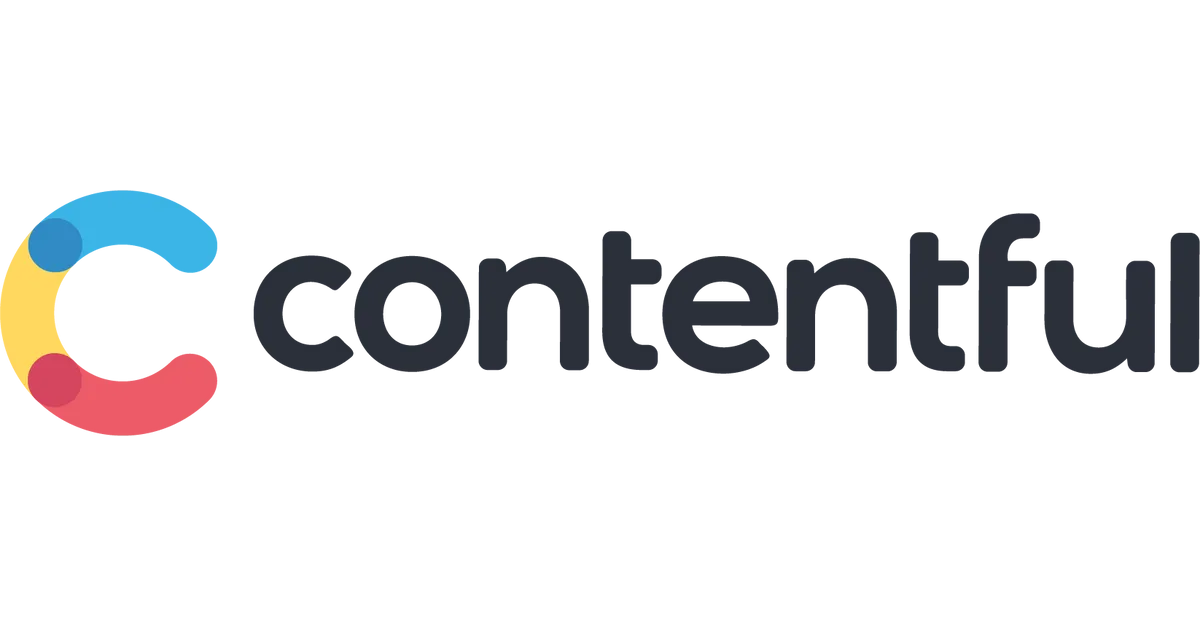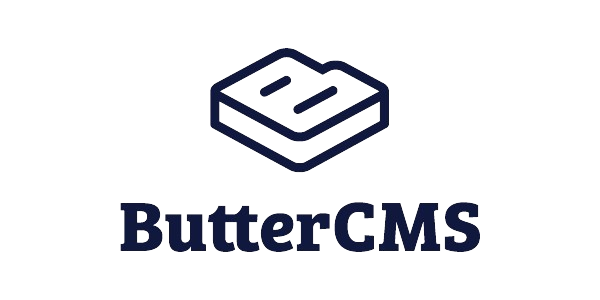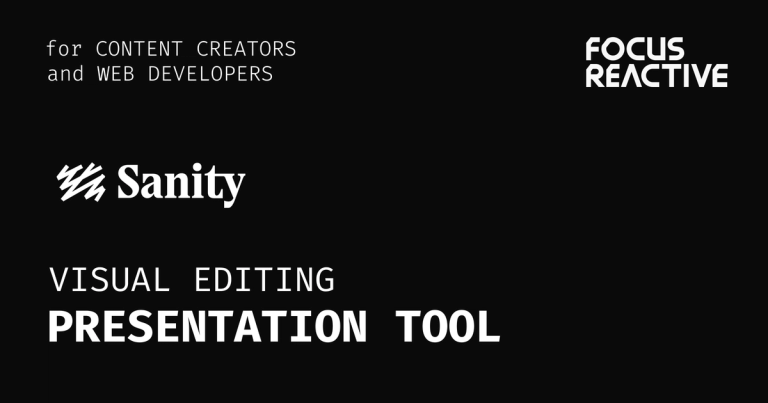Next.js CMS – Top Headless CMS Choices for 2026
Explore the best CMS platforms for Next.js in 2025. Compare Sanity, Storyblok, Contentful, and Payload to find the right headless CMS for your modern React and Next.js projects.

TL;DR
- The best headless CMS for Next.js depends on your priorities: performance, editor experience, hosting model, and team autonomy.
- Payload CMS, Sanity, and Storyblok are the strongest choices for modern Next.js projects, each excelling in different areas.
- Strapi CMS is a popular option for teams that need open-source control and self-hosting, but it requires more setup and maintenance.
- For most production Next.js websites, a headless CMS with native preview, revalidation, and CDN delivery provides the best balance of speed and flexibility.
Why a Headless CMS for your Next.js project?
Next.js and headless CMS are a perfect match for modern web projects. While Next.js delivers unmatched performance and development flexibility, a headless CMS provides powerful content management capabilities. Together, they create a solution where neither system constrains the other.
The API gateway between Next.js and your headless CMS is key to this powerful architecture. Your Next.js application stays blazing fast regardless of content volume, while content editors get an intuitive interface for managing complex websites without touching code.
When building a Next.js site with a headless CMS, developers typically:
- Design content models and reusable components
- Create page templates and building blocks
- Set up live preview and visual editing
- Configure production/staging environments
- Implement localization
- Enable automatic content updates
If you'd like to hear our opinionion first, check our opinionated Headless CMS guide.
Critical Integration Features
Not all headless CMS platforms work equally well with Next.js. Here's what to look for:
- Tag-based revalidation for instant content updates
- Draft mode support for content preview
- Live Preview and Visual Editing capabilities
- Deep data resolution for nested content
- CDN-powered image delivery with on-the-fly transformations
- Server-side rendering and static site generation support
Development Acceleration
Using a CMS-specific Next.js boilerplate can jumpstart your development with pre-built features. But proper integration still requires expertise in:
- Next.js rendering strategies
- Content modeling
- API integration
- Performance tuning
- Deployment configurations
Let's examine the top headless CMS platforms that work best with Next.js.
Best Headless CMS for Next.js: How to Choose
Not every CMS works equally well with Next.js. The best CMS for a Next.js project depends on how much control you need over infrastructure, how editors work with content, and how your application handles rendering.
In practice, most Next.js teams evaluate CMS platforms based on four factors:
- Compatibility with Next.js rendering strategies (SSG, SSR, ISR, App Router)
- Support for preview, draft mode, and content revalidation
- Performance of APIs and media delivery at scale
- Balance between developer control and editor usability
The platforms below represent the most popular headless CMS options for Next.js, each optimized for a different type of team and project.
Payload CMS
![]() Payload CMS logo
Payload CMS logo
Payload CMS is a newer entrant in the headless CMS space but has quickly gained attention for its developer-focused features and flexibility.
Next.js Payload Boilerplate
Next.js v15.1.5 with app router - A full-featured Next.js starter with Payload CMS, including authentication and dashboard.
![]() Payload CMS interface
Payload CMS interface
- Ease of Integration: Designed with developers in mind, Payload CMS offers full TypeScript support and a highly customizable admin UI, making it a perfect match for Next.js applications that use TypeScript.
- Flexibility: It stands out for its deep customization capabilities, allowing full control over the admin UI and the APIs. This level of customization makes it possible to tailor every aspect of the CMS to the project's needs.
- Performance: Payload CMS is tuned for performance, featuring efficient data handling and delivery mechanisms. This focus on performance is evident in the speed and responsiveness of Next.js applications powered by Payload.
- Community and Support: Though the community is currently smaller, it's rapidly growing. The developers are actively involved in expanding the documentation and offering support, making sure users have the resources they need.
Payload CMS Pricing
- Free
- Standard: $35/month
- Pro: $199/month
- Enterprise: Custom
![]() Payload CMS pricing
Payload CMS pricing
Sanity.io
Sanity logo
Sanity.io stands out with its real-time content editing experience and a highly customizable content studio.
Next.js Sanity Boilerplate
Next.js v15 with app router - A collection of Next.js starter templates with Sanity.io, supporting dynamic content management.
![]() Sanity interface
Sanity interface
- Ease of Integration: The platform offers great support for React and Next.js, including real-time preview capabilities that are invaluable during development.
- Flexibility: The customizable content studio and the portable text feature provide developers and content editors with the power to embed rich content structures directly within textual content, making it highly versatile.
- Performance: Sanity.io uses GROQ and GraphQL for data querying, offering efficient and flexible options for fetching data, which improves app performance.
- Community and Support: With a vibrant community and plenty of guides, finding help or inspiration is easy. Sanity.io also hosts regular developer streams and community events, fostering a strong sense of community.
Sanity Pricing
- Free
- Growth: $15/month per user
- Enterprise: Custom pricing
![]() Sanity Pricing
Sanity Pricing
Storyblok
![]() Storyblok logo
Storyblok logo
Storyblok stands out for its visual editor and block-based approach to content management, making it particularly friendly for both developers and content creators.
Next.js Storyblok Blueprint
Core Next.js Blueprint - Storyblok's official blueprint (starter template) for Next.js integration with modern features.
Storyblok recently introduced Blueprints - their new name for starter templates that come pre-configured with best practices and ready-to-use components. These blueprints make it even easier to get started with Storyblok and Next.js.
![]() Storyblok interface
Storyblok interface
- Ease of Integration: Storyblok's component-based approach integrates well with Next.js, allowing developers to map components in Storyblok to React components.
- Flexibility: The platform offers great flexibility through its block-based content system, enabling creators to build dynamic, rich content experiences without needing developer intervention for layout changes.
- Performance: Storyblok's content delivery is tuned for speed, using a CDN to make sure content is served quickly to Next.js applications globally.
- Community and Support: Storyblok has a rapidly growing community and provides extensive documentation, tutorials, and customer support, making it easy for developers to get started and find help when needed.
Storyblok Pricing
Starter - Free
Includes essential content management capabilities with a flexible, user-friendly interfaceGrowth - €99/month
Includes:- 5 user seats (up to 10, €15/month per additional user)
- 1 Space
- 400GB traffic/month (additional 250GB for €75)
- Visual Editor, Collaboration tools, Storyblok Labs
Growth Plus - €349/month
Includes:- 15 user seats (up to 20, €15/month per additional user)
- 1TB traffic/month (additional 250GB for €75)
- Single Story Scheduling
- Access control via Standard Roles
- 97% Uptime SLA
Premium - Custom pricing
- Custom number of user seats
- Includes all self-service features
- AI SEO, GraphQL, Custom Roles & Workflows
- Release management, SSO, 99.9% Uptime SLA
- Advanced support and usage-based billing
Elite - Custom pricing
- All Premium features +
- Unlimited Stories, Assets, and Version Retention
- Priority Support, Frequent Backups
- Access Token Scopes, Custom IP restrictions
- 99.99% Uptime SLA
![]() Storyblok pricing
Storyblok pricing
Prismic
![]() Prismic logo
Prismic logo
Prismic offers a straightforward and developer-friendly approach to content management, making it a popular choice for many Next.js projects.
Next.js Prismic Boilerplate
Next.js v15 with pages router - A Next.js example integrating Prismic CMS with a pages router approach.
![]() Prismic interface
Prismic interface
- Ease of Integration: Its REST API and support for webhooks make integrating Prismic with Next.js straightforward, supporting both static site generation and server-side rendering.
- Flexibility: The slices feature allows for building dynamic page layouts with ease, offering developers and content creators a flexible and powerful tool for designing content-rich pages.
- Performance: Prismic's use of a CDN for content delivery makes sure fast load times, a critical factor for maintaining high performance in web applications.
- Community and Support: While Prismic has good documentation and support, its community may not be as large as some others, but the quality of support and resources is high.
Prismic Pricing
- Free:
- Starter: $10/month
- Small: $25/month
- Medium: $150/month
- Platinum: $675/month
- Enterprise: Custom
![]() Prismic pricing
Prismic pricing
Strapi
![]() Strapi logo
Strapi logo
Strapi is an open-source, customizable headless CMS that supports various databases and frontend frameworks. Its API-centric approach and community-driven development make it a flexible choice for building scalable web applications. Strapi appeals to developers looking for control over their CMS environment.
Next.js Strapi Boilerplate
Next.js v14.1.3 with app router - A fully designed corporate starter template integrating Strapi with Next.js.
![]() Strapi interface
Strapi interface
- Open Source: One of the few fully open-source options available, giving developers complete control over their CMS.
- Self-hosting Capability: Can be self-hosted, providing full control over the hosting environment and security aspects.
- Customizable UI: Offers a customizable admin panel built with React, making it a natural choice for React developers.
- Community and Plugins: A vibrant community and a wide range of plugins available for extended functionalities.
Strapi Pricing
- Community: Free
- Developer: $29/month
- Pro: $99/month
- Team: $499/month
- Enterprise: Custom
![]() Strapi pricing
Strapi pricing
Contentful
![]() Contentful logo
Contentful logo
Contentful is a leader in the headless CMS market, offering a suite of features that work well for developers and content creators alike.
Next.js Contentful Boilerplate
Next.js v15 with app router - A Next.js example using Contentful with modern app routing.
![]() Contentful interface
Contentful interface
- Ease of Integration: With its React SDK, integrating Contentful with Next.js projects is straightforward, providing a smooth workflow for developers.
- Flexibility: Contentful's content modeling capabilities are unmatched, allowing for the creation of complex content structures tailored to any project's needs. Its environment feature supports staging and production setups, enabling a solid development workflow.
- Performance: Its Delivery API is built for speed, making sure content loads quickly, which is crucial for maintaining high performance in Next.js applications.
- Community and Support: A vast community and extensive documentation mean that developers can easily find solutions or get help when needed. Contentful also offers professional support services for enterprise users, making sure any issues can be quickly addressed.
Contentful Pricing
- Free
- Basic: $300/month
- Premium: Custom pricing
![]() Contentful pricing
Contentful pricing
Directus
![]() Directus logo
Directus logo
Directus is an open-source option that stands out for its API-driven approach and extensive customization capabilities.
Next.js Directus Boilerplate
Next.js v13 with pages router - A starter template integrating Next.js with Directus for headless content management.
![]() Directus interface
Directus interface
- Ease of Integration: Offering both RESTful API and GraphQL endpoint, Directus provides versatile integration options with Next.js, working well with different developer preferences.
- Flexibility: Being open-source, Directus allows for deep customization, from the admin UI to the underlying database schema. This flexibility makes sure developers can tailor the CMS to fit the project's exact requirements.
- Performance: While performance is generally good, it can vary depending on how the Directus backend is configured. But the ability to directly query the database helps minimize overhead.
- Community and Support: The growing open-source community around Directus is a rich resource for troubleshooting and inspiration. Directus also offers dedicated support plans for businesses requiring more personalized assistance.
Directus Pricing
- Self-hosted: License required
- Professional Cloud: $99/month
- Enterprise Cloud: Custom
![]() Directus pricing
Directus pricing
Ghost CMS
![]() Ghost logo
Ghost logo
Ghost CMS is an open-source platform focused on blogging and online publishing. Built on Node.js, it's known for its simplicity and speed, providing a smooth content creation process. Ghost is ideal for bloggers and organizations seeking a lightweight CMS that improves SEO and content delivery.
Next.js Ghost Boilerplate
Next.js v15 with pages router - A statically generated blog example using Next.js and Ghost CMS.
![]() Ghost CMS interface
Ghost CMS interface
- SEO Features: Provides SEO-friendly features like automatic sitemap generation and rich meta tagging, complementing Next.js's SEO capabilities.
- Modern Technology Stack: Built on a Node.js stack, Ghost aligns well with the server-side rendering features of Next.js.
- Lightweight and Fast: Its lightweight nature improves the performance benefits of Next.js, making it ideal for projects requiring high-speed content delivery.
- Membership and Subscriptions: Native support for memberships and subscriptions, enabling monetization in Next.js applications.
Ghost CMS Pricing
- Starter: from $10/month
- Creator: $25/month
- Team: $50/month
- Business: $199/month
![]() Ghost CMS pricing
Ghost CMS pricing
Kentico Kontent
![]() Kentico Kontent logo
Kentico Kontent logo
Kontent.ai, formerly known as Kentico Kontent, is a cloud-based CMS designed for content collaboration and delivery across multiple channels. It supports solid content modeling and real-time collaboration, making it suitable for large enterprises and digital agencies managing diverse content ecosystems.
Next.js Kentico Kontent Boilerplate
Next.js v13.0.0 with pages router - A Next.js boilerplate project to quickly set up Kentico Kontent with static generation support.
![]() Kentiko Kontent interface
Kentiko Kontent interface
- Workflow Management: Offers strong tools for collaborative content creation and workflow management, supporting the development cycles typical in Next.js projects.
- Content Modeling: Features powerful content modeling tools to structure content efficiently, which is key when building scalable Next.js applications.
- API Capabilities: Full APIs support efficient data exchanges, crucial for integrating with Next.js's data fetching methods like
getStaticPropsandgetServerSideProps. - Multi-channel Delivery: Makes sure consistent content delivery across all platforms, which pairs well with Next.js's universal rendering capabilities.
Hygraph (formerly GraphCMS)
![]() Hygraph logo
Hygraph logo
Hygraph is a headless CMS that uses GraphQL to improve content management and delivery. It allows for the quick development of content APIs with minimal coding, ideal for projects requiring complex content structures and relationships.
Next.js Hygraph Boilerplate
Next.js v13.0.4 with pages router - A quick-start template for integrating Next.js with Hygraph (GraphCMS).
![]() Hygraph interface
Hygraph interface
- GraphQL Native: Being a GraphQL-native CMS, Hygraph provides powerful developer tools that perfectly match Next.js's data fetching strategies, improving the development of complex applications.
- Schema Management: Easy management of content schemas with an intuitive interface complements Next.js's dynamic routing and static generation features.
- Real-time Collaboration: Supports real-time collaboration and version control, which are beneficial for teams working on Next.js applications.
- Rich Media Management: Advanced media handling capabilities make sure multimedia content is tuned for performance in Next.js applications.
Hygraph Pricing
- Free forever:
- Professional: $199/month
- Scale: $799/month
- Custom: Contact to get a quote
![]() Hygraph pricing
Hygraph pricing
ButterCMS
![]() Butter CMS logo
Butter CMS logo
ButterCMS is a straightforward headless CMS that integrates easily with existing projects thanks to its full API and SDKs. Known for its ease of use, Butter CMS is favored by marketers and developers needing to deploy content-rich sites quickly.
Next.js ButterCMS Boilerplate
Next.js v13.1.5 with pages router - A simple and flexible Next.js starter with ButterCMS for blog and landing pages.
![]() Butter CMS interface
Butter CMS interface
- Marketing Integration: Offers strong tools for SEO and content marketing, improving the marketing aspects of Next.js websites.
- Simple API: Its simple RESTful API is easy to integrate with Next.js, supporting quick implementation in existing projects.
- SDKs and Libraries: Provides SDKs for various programming languages, making it easy to integrate with Next.js and other parts of your technology stack.
- Personalization Features: Content personalization capabilities align well with the dynamic and static rendering options of Next.js.
Butter CMS Pricing
- Micro: $99/month
- Startup: $199/month
- Small Business: $375/month
- Enterprise + Agency: Custom
![]() Butter CMS pricing
Butter CMS pricing
Conclusion and Recommendations
After a detailed analysis of each platform, our top recommendations for Next.js developers based on specific project needs and priorities are:
Payload CMS:
Best choice for developers who want complete control and customization. With full TypeScript support and a React-based admin UI, it's perfect for teams that need a developer-first approach with maximum flexibility.
Sanity.io:
Perfect for projects that require real-time content updates and a high degree of customization in the content editing experience.
Storyblok:
Ideal for those who value intuitive content management with a visual editor and a block-based approach, offering ease of use for developers and content creators alike.
Best CMS for Next.js: Platform Comparison
| CMS | Best for | Hosting model | Editor experience | Ideal team |
|---|---|---|---|---|
| Payload CMS | Full control, TypeScript-first apps | Self-hosted | Developer-oriented | Engineering-led teams |
| Sanity | Real-time content, complex structures | SaaS | Highly customizable | Content-heavy products |
| Storyblok | Visual editing, block-based pages | SaaS | Visual editor | Mixed dev + marketing teams |
| Strapi | Open-source flexibility | Self-hosted / Cloud | Traditional admin UI | Teams needing ownership |
| Contentful | Enterprise content operations | SaaS | Structured, robust | Large organizations |
We're a specialist Headless CMS agency helping teams transition to modern content platforms with clean architecture, scalability, and editorial control. If you're planning a replatform or building from scratch, get in touch - or book an intro call with our team.


















